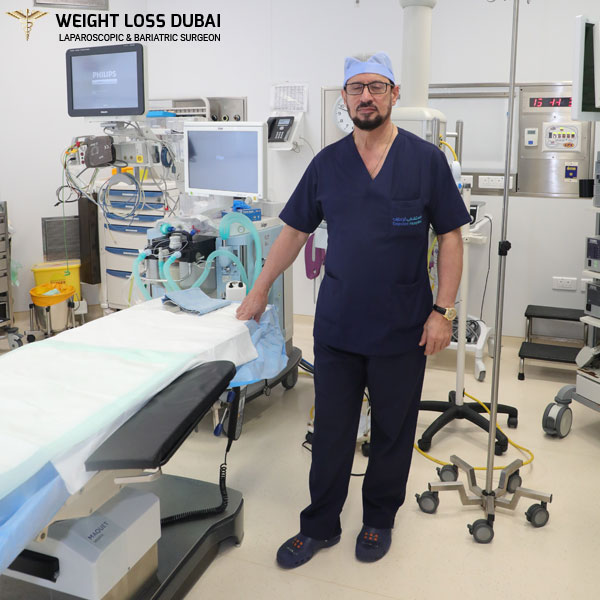Revitalize your appearance and fight obesity with gastric sleeve surgery. Find out whether you are eligible for weight-loss surgery in this comprehensive post.
Combating obesity might sound challenging, especially when you experience problems losing weight. When lifestyle modifications, exercise regimens, and weight loss supplements do not work, laparoscopic sleeve gastrectomy surgery becomes your beacon of hope.
Interested to learn why more individuals are undergoing this surgery in recent days? Let’s assess the reasons in the below-offered pointers.
Gastric Sleeve Surgery – A Beacon of Hope for Obese People
Gastric sleeve surgery can treat severe obesity in individuals who have tried and failed with other weight loss methods. The doctor may advise the surgery if you are obese with a BMI of over 40.
Some people also call it VSG or vertical gastric sleeve operation. It is a restrictive weight loss surgery where the surgeon eliminates 80% of the stomach. A narrow tube remains inside, connected to the intestines.
The surgeon removes a huge portion of the stomach that drives hunger, which results in a loss of appetite.
Here’s presenting the reasons why people consider this surgery better than any other bariatric procedure:
-
The Safest Bariatric Surgery As of Now
This surgery is safer and less invasive than other bariatric surgical procedures like gastric banding and gastric balloon. The process is speedier as patients don’t need to undergo a long surgical process. It does not involve complex intestinal rerouting or bypass. So, patients may expect fewer risks and speedier healing.
-
A Minimally Invasive Method That Offers Long-Lasting Results
Sleeve gastrectomy is a minimally invasive method, which is performed by inserting a thin tube with a camera via tiny incisions. So it does not need any large incision. Unlike gastric bypass, it does not require rerouting of the intestinal tract.
The process is much speedier and less painful with mitigated risks of complications. It is most appropriate for patients with high-risk medical complications. Although the long-term outcomes of bariatric surgery depend on lifestyle choices, gastric sleeve offers long-lasting results. So, consult the best weight loss doctor to discover the ins and outs of this surgical treatment.
-
Promotes Weight Loss with Speediness
The process involves reducing the stomach’s size in order to limit food intake. That means even with an adequate amount of food, you can feel fuller. From reducing hunger hormones inside the stomach to preventing impulses causing you to regain weight, it does everything in between.
-
Improves and Eliminates Certain Ailments
The prime purpose of this surgery is to reduce food consumption by reducing the size of the stomach by 80%. However, that’s not the ultimate goal of this surgery. Did you know it can also improve other health conditions besides combating obesity? Let’s learn them one by one from the following points:
-
Type 2 Diabetes
This surgery can treat type-2 diabetes in two ways. While it helps patients achieve a healthier BMI by limiting food intake, it decreases the calories the body absorbs. This can decrease a patient’s insulin resistance, thereby controlling blood sugar more. In addition, it can also maintain the levels of blood pressure.
-
Hyperlipidaemia or High Cholesterol
A customized laparoscopic sleeve gastrectomy surgery can be effective in aligning healthy cholesterol. Also, it protects your health in the long run. This bariatric method can reduce LDL at a faster pace.
-
Fatty Liver Disease (Non-alcoholic)
Fatty deposition in your body can lead to an enlarged liver, resulting in diabetes. What it does is increase the insulin resistance in your liver. With this type of bariatric surgery, you can lose weight, decreasing the fatty deposits in the liver.
-
Sleep Apnoea
Did you know sleeve gastrectomy removes the stomach’s part producing ghrelin? Note that ghrelin is the hunger hormone. The fatty tissue around the upper airway will be decreased. So, it eliminates the upper airway collapse occurring with sleep apnoea. Besides, sleeve gastrectomy can alleviate joint pain and obesity-related arthritis. Also, this type of bariatric surgery improves fertility and other pregnancy outcomes.
-
Improved Emotional Health, Increased Confidence
People suffering from obesity may experience depression: blame it on social stigma or lost confidence. It becomes further frightening if the person fails to meet the weight loss goals despite implementing lifestyle modifications, medications, and exercises. For such a patient, sleeve gastrectomy surgery is the triumph over obesity and other complicated medical issues. It improves confidence and self-esteem too.
So, the above reasons indicate that this bariatric surgery has become a top-notch and fan-favorite treatment for permanent weight loss. Want to boost your confidence and bid farewell to complicated medical conditions due to obesity? It’s time you consult a bariatric clinic in Dubai.
About Author
Al Taie Center is a one-stop weight-loss clinic for people wishing to undergo bariatric surgery from the best weight loss doctor Dubai & Abu Dhabi. Under Dr. Abdulsalam Al Taie’s guidance, patients can ensure a minimum healing period and maximum effectiveness. The insightful blog elucidates the benefits of undergoing sleeve gastrectomy at this center.








